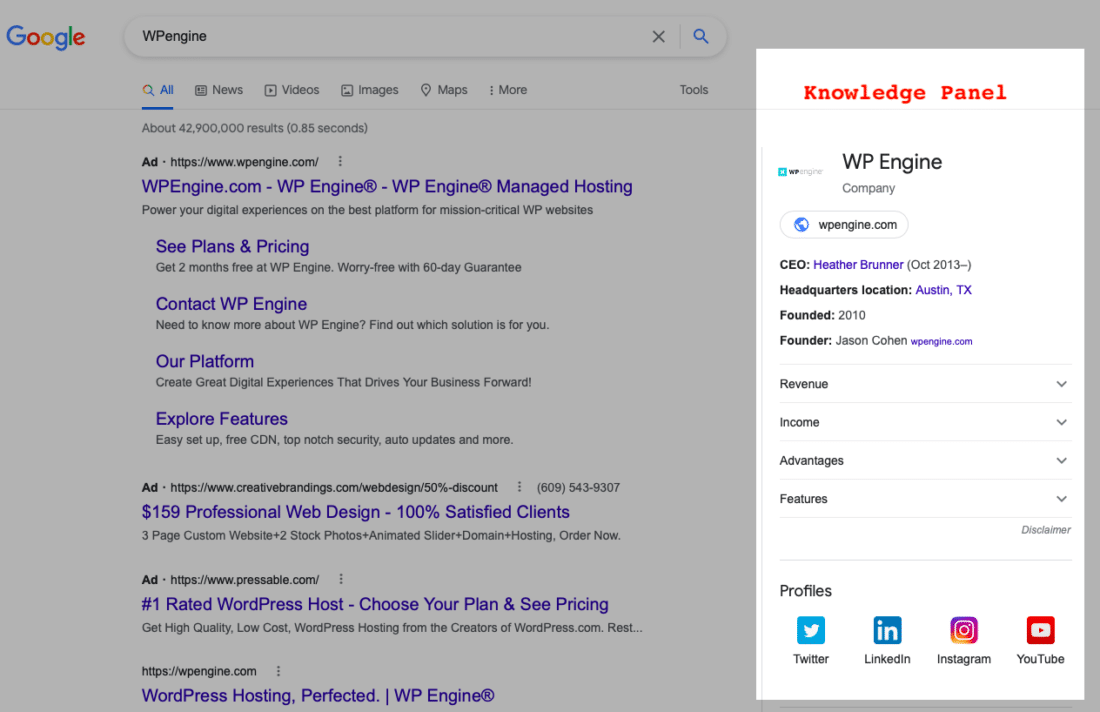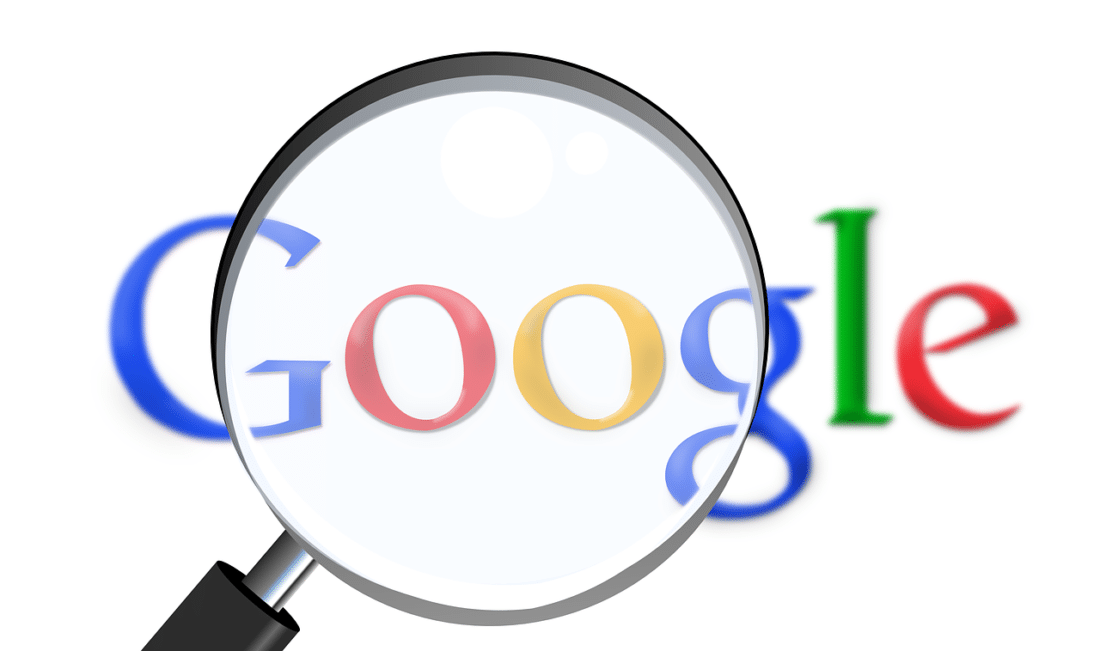When you search for a topic or subject on Google, you are presented with several types of results on a SERP (search engine results page). Depending on your specific search, a typical SERP includes ads, links to other websites, questions and answers, images, maps, news and business listings. Given that an estimated 80% of web traffic begins with a search query, it’s vital to know how it works.
Most SEO (search engine optimization) strategies are designed to gain higher visibility in the search results. There are two highly valuable areas of the SERP in search strategy—the Google Knowledge Graph and the Knowledge Panel. According to SEO toolset Ahrefs, having your brand featured in the Knowledge Graph will help you gain additional SERP real estate while becoming an authoritative and trustworthy source.
Knowledge is Power
Google’s Knowledge Graph is a database of more than five billion people, places and things made up of over 500 billion facts. You can access quick information to questions such as, What is the Google Knowledge Graph? How does it work? When did it start? Although the answer is provided to you in the SERP, you can also click to explore other external sources.
Facts in the Knowledge Graph come from a variety of sources that compile factual information. In addition to public sources, licensed data provides information such as sports scores, stock prices and weather forecasts. That information comes directly from content owners in various ways, including from those who suggest changes to the knowledge panels they’ve already claimed.
Google also displays Knowledge Graph data in its knowledge panels. The knowledge panel is the information displayed in a stand-alone section on the righthand side. It features a short description about the item you searched for while providing additional links and resources.
It’s All Topical
The knowledge panel contains information that Google considers as fact which is established by an algorithm. The algorithm takes the data collected by GoogleBot, cross-references that with trusted sources, and derives facts shown in SERP.
Google displays the most relevant and popular information for a topic within a knowledge panel. What shows up in a knowledge panel will vary depending on the topic. It typically includes the following:
- Title and short summary
- Longer description of the subject
- Picture or pictures of the person, place or thing
- Key facts such as when a notable figure was born or where something is located
- Links to social profiles and official websites
Knowledge panels might also feature special information related to particular topics. For example:
- Songs from musical artists
- Upcoming episodes from TV shows
- Rosters of sports teams

Find What You Were Looking For?
Let’s look at the mechanics behind a Google search.
In any given search, Google uses key factors to determine the most helpful response. It scans the words in the query, the relevance and usability of pages, expertise of sources, and location and settings. The weight applied to each factor varies depending on the nature of the query.
So what does that mean exactly? Depending on the history of the search term, Google goes back and aggregates prior searches. First, it decipers the context of the search query. Then it scours the internet for matching keywords, pictures and videos. Next it checks the quality of the content such as expertise, authoritativeness and trustworthiness.
The page experience will now be accessible. It then considers the location, past search history, and search settings of the device to provide the most useful and relevant results in that moment.
When a search for a person, place or thing is entered into a search bar, Google displays a knowledge panel. The information can come from multiple sources: Wikipedia, Wikidata, Crunchbase, LinkedIn, Facebook, Zoominfo, WordLift and many others.

According to SEO software platform Semrush, Google stores information into its Knowledge Graph if it’s deemed reliable and accurate. That said, a company’s Knowledge Graph is basically driven by Google’s own Knowledge Graph.
Staking a Knowledge Claim
So how do marketers get their information listed in the knowledge panel? Many knowledge panels can be claimed by their subject such as a person or a company.
It’s possible to become verified by typing in your name, brand or company into the Google search bar and finding the button in the knowledge panel that says, “Claim this knowledge panel.” A series of steps will require you to verify your information with either your YouTube or search panel login.

What should you do if your information on the Knowledge Graph is incorrect? Send Google feedback by selecting the “Feedback” link at the bottom of a knowledge panel or in the righthand corner on your mobile device. Google analyzes the feedback and uses it to correct inaccurate information.
Stay Relevant
Once you have verified your knowledge panel, there are other steps you can take to ensure it remains accurate and relevant.
- Create a page on your website that contains all information needed for the knowledge panel. Make sure this information is found on an “About” page and is kept up to date.
- Add organization schema.org markup to help Google read your “About” page and easily digest it for its database.
- Make sure your schema markup contains links to reputable sources that refer to your company and that information on those sites is accurate.
- Sign up for Google My Business if you have a physical business location.
- Create a wikidata.org entry that feeds all the other wikimedia sites as this is Google’s #1 source. This comes with a big disclaimer; you no longer control the content that will be served up on your knowledge panel and instead are at the mercy of wiki editors. (Read more about the potential downside of a Wikipedia entry at Semrush.)
Conclusion
Knowledge graphs and panels have been around for a while and will only continue to grow in importance. Understanding these subjects is critical for SEO because Google is already moving toward entity-first indexing. In the future, the search engine will use this indexing to deliver results on any device—results that matter most.





Join the conversation